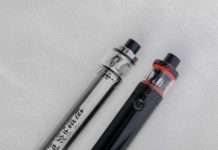Russian State Corporation Rostec will begin mass production of new airfield radar systems to ensure safe aircraft landing control. The new equipment will provide for accurately determining an aircraft’s deviation from a predetermined path of descent and transmit information to the crew and to ground services.
The hardware will be produced by Chelyabinsk Radio Plant Polet (part of Vega Concern of Rostec’s Ruselectronics holding company). The system is designated to manage air traffic in the approach zone of airfields and makes it possible to control the final approach of all types of aircraft. The new radar will enable the accurate landing, including that of light aircraft, which are not equipped with sophisticated navigation systems, or aircraft that have one or more of its onboard navigation systems in failure.
The RSP-2ST accurate approach radar system includes AORL-1AS dispatcher’s (survey) radar and PRL-2ST landing radar. The equipment is able to detect an aircraft at a distance of up to 350 km, follow them up and monitor parameters of their movement trajectory in relation to fixed objects and moving meteorological formations. Instead of a rotating locator, the complex uses a system of active phased antenna arrays, which increases its reliability and accuracy, and simplifies its repair.
“The new development of Rostec will complement the line of modern airfield equipment already produced by the State Corporation in order to modernize the aviation infrastructure in Russia. Its relatively low cost makes it suitable not only for large airports but also for small regional ones. The cost of our system is about 25% lower than domestically produced analogues and 75% lower than foreign peers with comparable characteristics. The mass production is scheduled to start in the 3rd quarter of 2020,” said the Executive Director of Rostec Oleg Evtushenko.
Earlier, Rostec announced the completion of the certification of the newest airfield complex SP-2010 designed for aircraft landing in adverse weather conditions. The complex uses echo box antennas, radiating signal of which is not influenced by such environmental factors as moisture, precipitation, and icing. This is the first complex in the world that does not require removing the snow in front of the beacon antennas in winter.
Rostec’s radar and navigation equipment is installed on more than 160 airfields in 31 countries.












